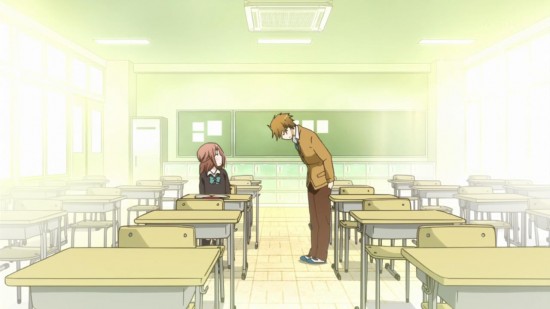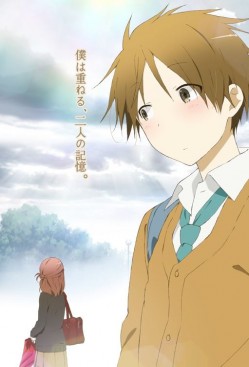 I didn’t have high hopes for One Week Friends (Isshuukan Friends) (Crunchyroll). The premise sounded maudlin and not very original–probably lifted directly from a mediocre American movie called 50 First Dates (IMDB).
I didn’t have high hopes for One Week Friends (Isshuukan Friends) (Crunchyroll). The premise sounded maudlin and not very original–probably lifted directly from a mediocre American movie called 50 First Dates (IMDB).
In fact I’m really enjoying it so far. The originality of the premise is much less important than how well it is executed. The execution here–the directing, writing and acting–all feel perfect.
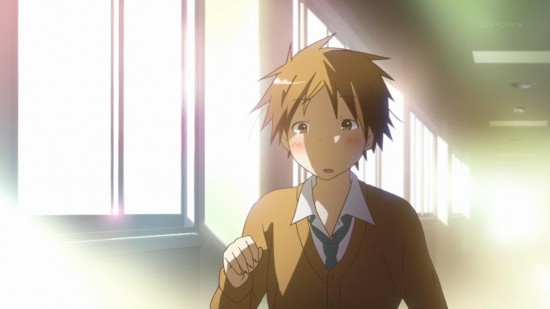
Yuuki Hase seems a somewhat unpromising hero. He’s a goodhearted but awkward high school student with no particular academic gifts.
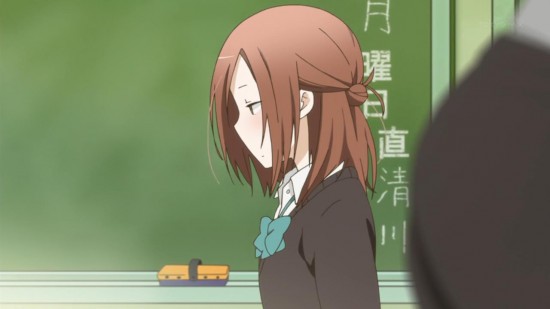
He is intrigued by Kaori Fujimiya, a girl who seems smart but very shy and withdrawn.
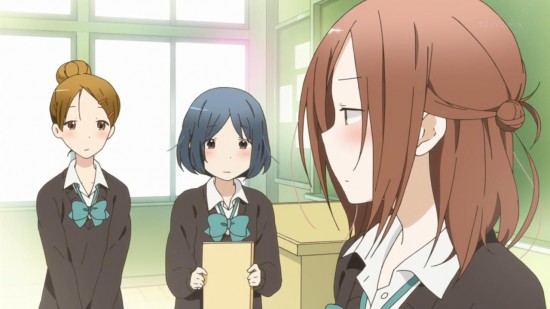
When people try to approach her she rebuffs them in a flat, affectless voice. It might be a sign of clinical depression–but not in this case.
Yuuki screws up the courage to accost her in the hallway and ask her to be his friend. She panics and runs away.
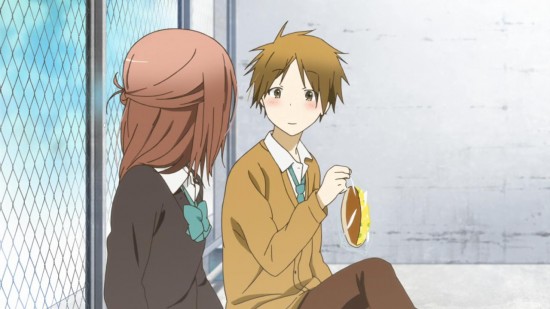
Yuuki is not easily discouraged. He figures out that she eats lunch every day alone on the roof. He goes up there and asks if he can join her.
She grudgingly agrees that he can eat lunch on the roof too if he promises not to speak to her in class.

Gradually, day by day, Kaori relaxes and opens up. By the end of the week she seems downright cheerful. However her behavior in class is unchanged.
But on Friday she tells him the terrible truth. She suffers from a spectacular anime disease: recurrent amnesia. At the beginning of every week her memories get wiped. Not all of her memories (that would make it impossible to attend school.) Just the happy memories, particularly memories of friends.
That seems a pretty implausible assumption to suspend disbelief about, but if we can accept it for the sake of the story a lot of things suddenly make sense. Her behavior turns out to be a rational coping strategy. If she made friends in class, or even allowed herself to have fun, she wouldn’t be able to remember her school work.
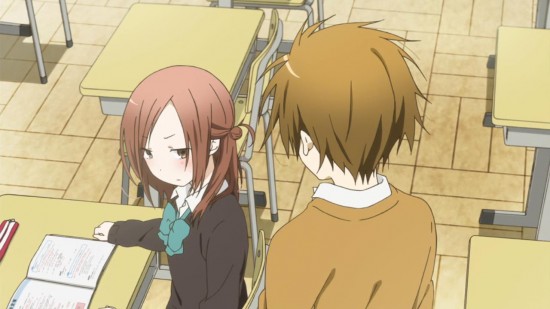
Sure enough on Monday it is clear that Kaori doesn’t remember him. Yuuki is distressed but once again he is not easily discouraged. He vows to go through the process of making friends with her every week, as many times as necessary.
So this is the sort of show where every episode retells the same story. It isn’t Endless Eight though. The events change as they gradually learn better coping strategies. It helps when Kaori starts to keep a diary, but it’s painful for her every Monday to read about happy events that she doesn’t remember and feels no emotional connection to.
When summarized this way it probably doesn’t sound like much. What makes the story special are the things that you have to see to appreciate: the brave, likeable characters, the believable dialog and the skillful direction. Whether it will hold up well for the entire season remains to be seen.
